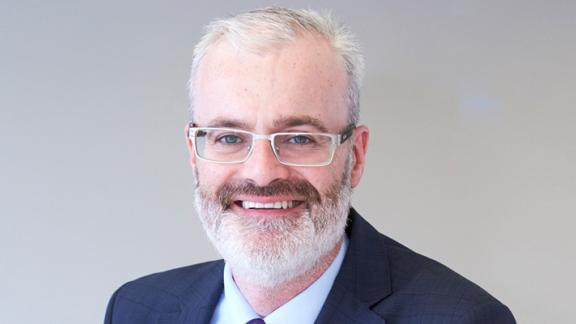Looking after our leaders

Increasingly there is a worry that the element missing in our conversations with leaders is their own wellbeing, writes NHS Confederation chief executive Danny Mortimer.
Whenever my colleagues and I at the Confed talk to senior leaders across the health service, the first thing you typically tell us about is your concerns about the wellbeing of your workforce and the support they need going forward. There are some cases of PTSD being reported already, but more prevalent, you tell me, is a feeling of tiredness and anxiety: many colleagues have relatives or friends who have contracted the virus who face losing their job, the education of their kids still feels uncertain and fraught, and of course many services have been working without full compliments of staff or the kit they need for long before the pandemic.
Indeed, in the survey which informed our major NHS Reset report last week – the culmination of six months of engagement with our members and partners - nine out of ten of you who responded said you are concerned about the long-term impact that the pandemic will have on frontline staff. The issue is I know one you have focused and acted on throughout the pandemic.
The conversation always then in fairness offers some optimism: the commitment of you and your senior teams to supporting staff, their resilience, the commitment to patients and communities, the evident team work and mutual support within and between organisations.
Increasingly though I worry that there is an element missing in the conversation with you, and the echoes in those with national leaders. It's you. And your well-being.
As my predecessor Niall Dickson wrote to you in April, leaders matter too and what has been asked of you is also exceptional.
For our part, the NHS Confederation will continue to be in your corner, just as we hope to be for all of your challenges. There is a particular focus within Reset on regulation and performance management and your clear message that a very different approach is needed from DHSC and ALB colleagues.
One of the big priorities you have told us about through our NHS Reset campaign is the need for a new relationship with the centre.
Despite the extraordinary challenges earlier in the year, we know that change happened at pace in every part of the health and care system, built from the bottom up by leaders who united around the shared challenges presented by the pandemic. You were quick to tell us that this was facilitated in no small part, by the removal of various bureaucratic stumbling blocks that have previously hindered progress.
One of the key factors we identified in our report this week as fundamental to achieving a sustainable health and care system was the need for everyone to embrace a culture that empowers local leaders and clinicians to lead, giving them the ability to make good decisions for the communities they serve.
This is not about accountability being reduced, it is rather about that accountability being focused and strategic, and the behaviours associated with it being professional and respectful, even where challenge is needed. That will help the wellbeing of you and your teams, at every level, as well as support innovation longer term.
The message then I am taking forward is about proportionate regulation that strikes the right tone and enables you to make changes that can improve patient experience. In light of that, we were encouraged by the tone adopted by the Care Quality Commission in its draft strategy discussion paper released and I will ensure that your views and needs are included in this and other conversations with regulators.
The regulators have a part to play therefore in supporting you, but we at the Confed have also have tried to play our part in supporting leaders. The work of our Health and Care Women Leaders Network, BME Leadership Network and LGBTQ+ Leadership Network enable peer-to-peer conversation and learning, while seeking to challenge and improve policy and practice in relation to diversity. We’ve also for a number of years now run learning sets for newly appointed Chief Executives, facilitated by another of my predecessors, Stephen Dalton. Let us know if you want to find out more about these networks.
This question of the support you need is one that has in fairness had some attention during the pandemic. Back in the spring Dido Harding asked Sam Allen, chair of our Health and Care Women Leaders Network, and Stephen Dalton, to talk with leaders across the service to establish what they needed in terms of support.
This led in May to the Confed putting together a series of recommendations for a suite of support, which we proposed we would deliver independently of the ALBs. Whilst it didn’t prove possible for us to deliver that offer on behalf NHSE/I, it did appear to inform some of the proposals for leadership support in the 2020/21 People Plan. Since then, Stephen has convened a group of Chief Executives to advise Prerana’s team on the development of the support offer, and 50 colleagues are meeting in the coming weeks with Stephen and Jacqueline Davies, the new NHS E/I Leadership Director, to continue the conversation that Dido started back in the spring.
I’m hopeful that these conversations will ensure a national offer which will support the needs many of you identified to Stephen and Sam. Clearly though it is also important that within your organisational and system boards and executive teams you take time to reflect on all that has been achieved, but to also acknowledge what support you may need from each other as well from NHS E/I or elsewhere.
Danny Mortimer is chief executive of the NHS Confederation. Follow him on Twitter at @NHSE_Danny



